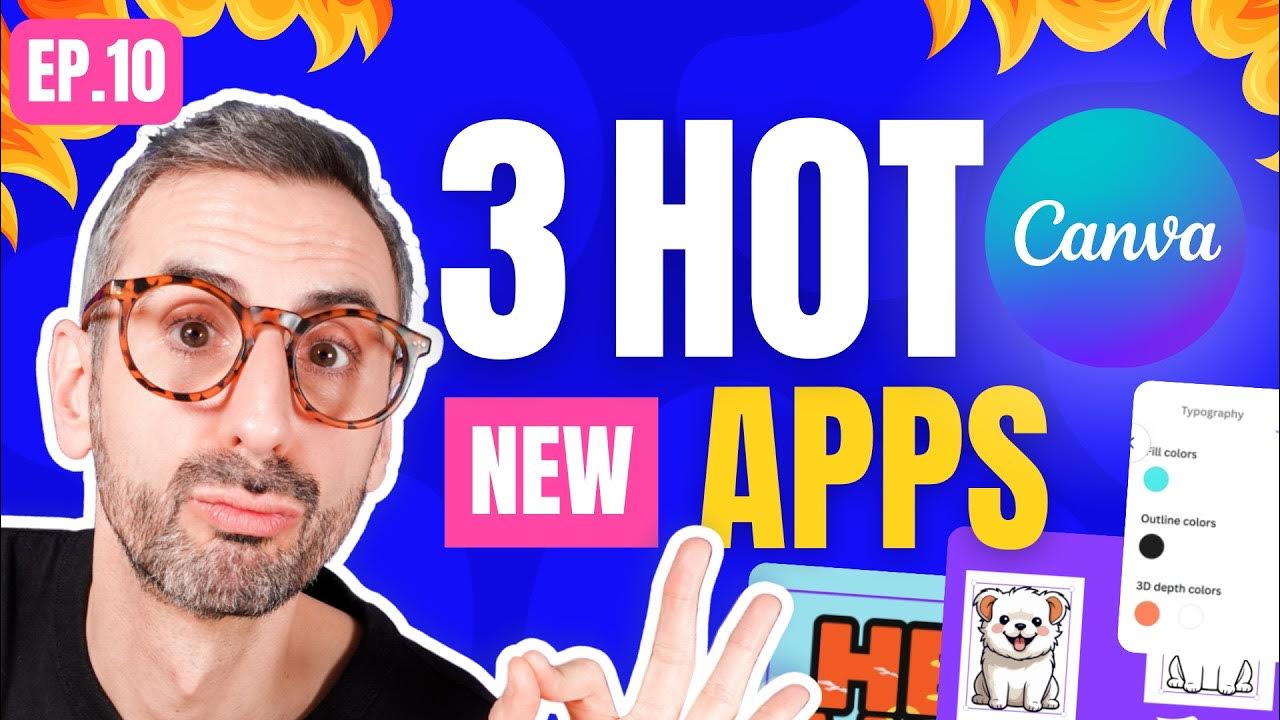Privacy and smartphone apps: What data your phone may be giving away (CBC Marketplace)
Summary
TLDRThis CBC Marketplace episode explores the privacy risks associated with smartphone apps. The show creates a fake horoscope app to demonstrate how much personal data users can inadvertently give away by accepting app permissions. It reveals access to text messages, call logs, camera, microphone, and location, emphasizing the importance of reading app terms and conditions. The episode also discusses data collection practices, the role of privacy commissioner, and offers tips on managing app permissions to protect personal information.
Takeaways
- 📱 The script discusses the privacy implications of downloading apps on smartphones, highlighting how much personal information users may give up.
- 👀 It reveals that many smartphone users are unaware of the extent to which apps can access their personal data, including text messages, camera, and microphone.
- 🔮 The experiment involved creating a fake horoscope app to demonstrate how easily users can be tricked into downloading apps with intrusive permissions.
- 🌐 The app created for the experiment, 'My Daily Horoscope', was designed to mimic popular apps and their privacy policies to test user reactions.
- 📊 The script shows that users often skim or ignore terms and conditions, which can lead to unknowingly granting apps access to personal data.
- 📍 The experiment revealed that the fake app could access users' location data, call logs, and even take photos using the phone's camera.
- 💸 The script suggests that companies may collect more data than necessary to sell to advertisers, increasing the value of user information.
- 🛡️ It emphasizes the need for better consumer awareness and the importance of reading and understanding app permissions before downloading.
- 🏦 The script also touches on the potential for identity theft and financial fraud facilitated by the information users share online.
- 🌐 It discusses the role of privacy commissioners and regulatory bodies in protecting user data, comparing different approaches in the US, Europe, and Canada.
- 🔒 The script concludes with advice on how users can better protect their data, such as managing app permissions and uninstalling unused apps.
Q & A
What is the main concern raised by the video about smartphone apps?
-The video raises concerns about the amount of personal information that smartphone users give up when they download apps, such as text messages, call logs, photos, and location data.
What did the experiment with the horoscope app demonstrate?
-The experiment demonstrated that by accepting the app's terms and conditions, users granted access to their text messages, call logs, camera, microphone, and GPS locator.
Why did the participants feel violated after the big reveal?
-Participants felt violated because they realized the extent to which their personal information and privacy could be accessed just by accepting an app's terms and conditions.
What is the term used to describe data in the context of its value to companies?
-Data is referred to as the 'new oil' for companies, indicating its high value in the digital economy.
What is one of the main reasons companies collect personal data according to Domingo Guerra?
-Companies collect personal data to sell it to third parties, such as advertising networks, for a higher price.
What is the role of Canada's privacy commissioner as discussed in the video?
-Canada's privacy commissioner is responsible for protecting privacy but currently only has the power to give out warnings, not fines or enforce changes in company practices.
What is the 'Briefcase of Doom' mentioned in the video?
-The 'Briefcase of Doom' is a gadget that can clone credit cards, allowing hackers to steal identities and money.
What advice does the video give to users about app permissions?
-The video advises users to be cautious about the permissions they grant to apps and to regularly check and manage these permissions through their phone's application manager.
How can users protect their data according to the video?
-Users can protect their data by reading and understanding app permissions, regularly managing these permissions, and deleting apps that are not in use.
What is the significance of the Defcon convention in the context of the video?
-Defcon is the world's largest hacker convention where ethical hackers expose security flaws. The video uses it to illustrate the real-world capabilities of hackers and the importance of digital privacy.
How does the video suggest that companies are using the data they collect?
-The video suggests that companies are using collected data for targeted advertising, selling to third parties, and potentially for other undisclosed purposes.
Outlines

Cette section est réservée aux utilisateurs payants. Améliorez votre compte pour accéder à cette section.
Améliorer maintenantMindmap

Cette section est réservée aux utilisateurs payants. Améliorez votre compte pour accéder à cette section.
Améliorer maintenantKeywords

Cette section est réservée aux utilisateurs payants. Améliorez votre compte pour accéder à cette section.
Améliorer maintenantHighlights

Cette section est réservée aux utilisateurs payants. Améliorez votre compte pour accéder à cette section.
Améliorer maintenantTranscripts

Cette section est réservée aux utilisateurs payants. Améliorez votre compte pour accéder à cette section.
Améliorer maintenantVoir Plus de Vidéos Connexes

The REAL reason end-to-end encryption is "allowed" (UNPATCHED)

App-rova di privacy. I suggerimenti del Garante privacy per un uso consapevole delle app

Security and Privacy Risks in AI Systems | CSA AI Summit Q1 2025

FinTech opportunities and risks

Hot New Canva Apps | Ep. 10 - Text Maker, Tracer, FontFrame

Finally. Privacy Focused AI Use is Here!
5.0 / 5 (0 votes)
